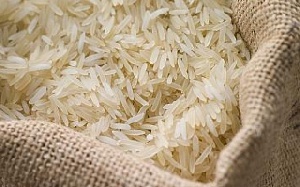 Regulatory bodies are not working.
Regulatory bodies are not working.
Some importers buy rice from Ghana and take it to Dubai where they repackage it and export it back to the West African country, Dr Michael Osei, a crop improvement scientist and lecturer at the University of Cape Coast, has revealed.
Speaking on the possibility of plastic rice flooding the Ghanaian market in an interview on Accra-based Joy FM’s Super Morning Show on Wednesday June 21, Dr Osei said: “I don’t think there any regulatory bodies and even if there are regulatory bodies, I don’t think they are working – that if I decide to bring rice into this country, I need to go through a process and I will be certified, probably given a licence to be able to import a certain brand of rice, and I cannot import any other brand of rice except the ones for which I have been granted the licence.
“Currently when you go to the market, you could find hundreds of brands and that is quite dangerous. We don’t know who is bringing these ones and we don’t know what sort of certification or licence they have been provided to bring these ones.
“So, basically, it is a failure along the supply chain. Fraudsters perpetrate their crimes through vulnerability in the food supply chain, so we need to have end-to-end visibility and supply chain transparency that is very critical. We need to be able to trace and track products’ pedigrees and history but can we be confident and say that we can track brand A from its source to Ghana?”
He added: “Two years ago, myself and my colleagues, we did a paper and we realised that the United Arab Emirates (UAE) [exports] rice to Ghana.
“In this country [UAE] they don’t produce one grain of rice, so what they basically do is they import the rice from Ghana and then bag, repackage and export back to Ghana. So if rice is coming from UAE, can we trace it back to where it was produced?”